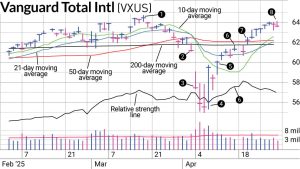
As tuition costs climb and artificial intelligence reshapes the workforce, a growing number of young Americans are questioning whether a college degree still offers a meaningful return on their investment. For Gen Z and millennials, the traditional value of higher education is under scrutiny — especially in an economy where degrees no longer guarantee job security or career growth.
A recent survey by Indeed found that 51% of Gen Z professionals consider their college degree a waste of money, compared to 41% of millennials and just 20% of baby boomers. For many younger graduates, the cost of education, combined with student loan burdens and an uncertain job market, has made them question whether college was the right path.
Don’t Miss:
According to the Education Data Initiative, the average cost of a bachelor’s degree has doubled over the past 25 years, now exceeding $38,000. Meanwhile, student loan debt in the U.S. is nearing $2 trillion. These financial strains are shifting how young professionals view their degrees: nearly four in 10 say student debt has slowed their career growth more than their diploma has helped it.
Artificial intelligence has introduced another layer of doubt for recent grads. About one-third of college-educated workers believe AI has already made their degree irrelevant, according to Indeed — a figure that climbs to 45% among Gen Zers.
Yet some experts argue this fear may be overstated. “AI is not going to take your job,” Netflix co-CEO Ted Sarandos told The New York Times last year. “The person who uses AI well might take your job.”
Similarly, Kyle M.K., a career expert at Indeed, told Fortune that while some technical roles are more exposed to automation, areas like nursing and creative strategy remain relatively insulated.
The key, he says, is adaptability: “AI won’t invalidate a solid education, but it will reward those who keep upgrading their toolkit.”
Trending: Hasbro, MGM, and Skechers trust this AI marketing firm — invest pre-IPO from $0.60 per share now.
Even as more young people earn degrees, the job market doesn’t always reflect that value. Researchers suggest the “college wage premium” — the extra income typically earned by degree holders — has plateaued. And with more graduates than ever before, competition for skilled jobs has intensified.


